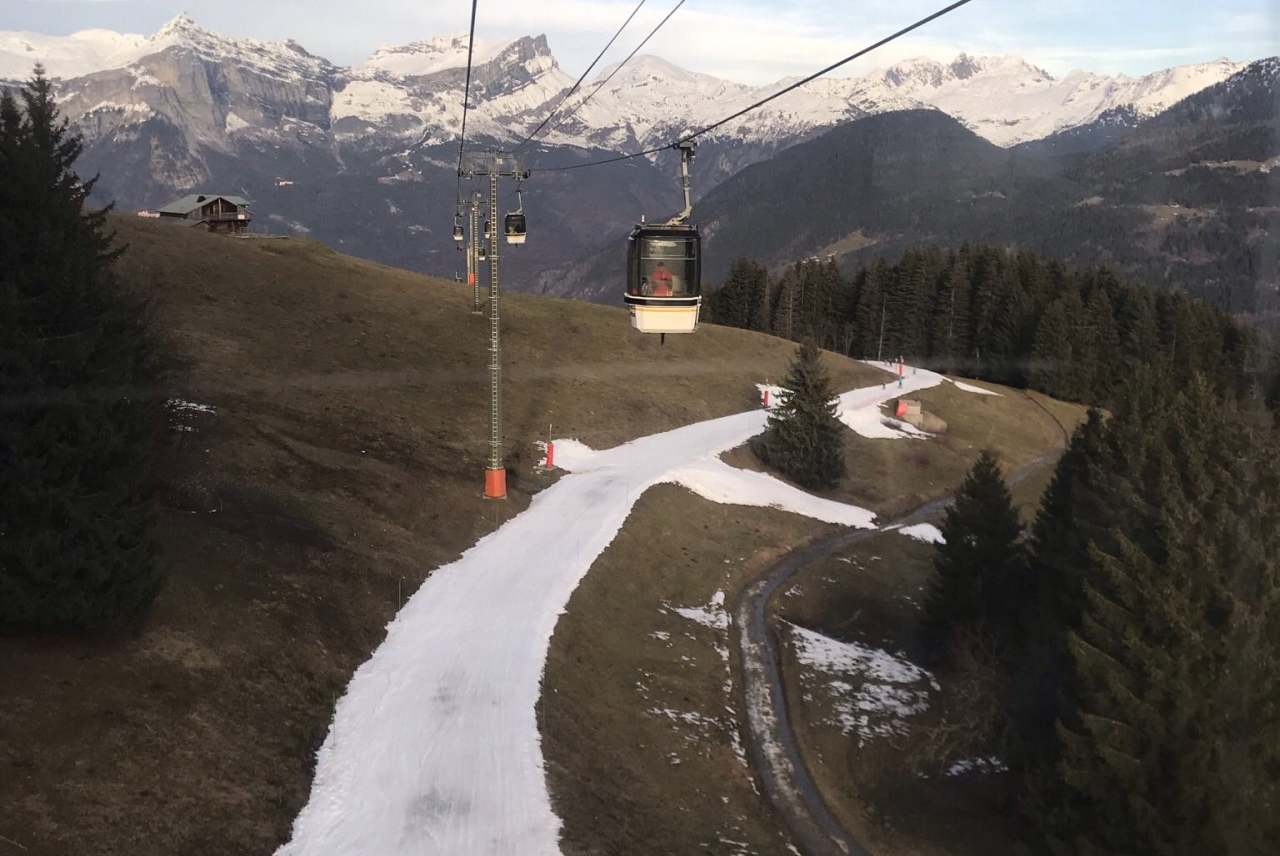Mountain communities and climate change
At the heart of the confrontation is the stark fact that as the Alps warm, snowfall is becoming increasingly unpredictable. This is a growing headache for the ski industry as reliable snow underpins the whole economy of vast swathes of the Alps.
In response, the ski industry’s solution is both simple and controversial: build more and more reservoirs high up in the mountains to provide water which enables ski resorts to create the artificial snow that they desperately need.
The issue at La Clusaz is that the resort already has four mountain reservoirs for snowmaking. The local council however now wants to build a fifth slap-bang in the middle of the Bois de la Colombière at the cost of €10 million. This would destroy an area of forest equivalent to 20 football pitches and threaten the future of the protected peat bog.
As well as objecting to the destruction of the forest and likely demise of the peat bog, environmental campaigners say that using water to make artificial snow is a waste of water given that the Alps are now drying out. Local campaigner Valérie Paumier said,
“The climate crisis here in the Alps isn’t only resulting in warmer temperatures but far less precipitation too.”
With over one hundred new mountain reservoirs planned across the French Alps, environmental groups dug their heels in and made the battle for the Bois de la Colombière a key test case for the whole country. The protests even attracted Extinction Rebellion France which set up a camp in the forest to save it from the chainsaws.
Central to their campaign is the question of how mountain communities such as La Clusaz should respond to the climate crisis. Should they continue to spend vast sums on skiing and snowmaking, or should they prepare for the transition to the new climatic reality of life without snow?
After an initial setback in September 2022 which saw the go-ahead for the new reservoir, the campaigners’ demonstrations and petitions paid off. In an unexpected move, a court in October overturned the previous ruling and delayed the final decision on the new reservoir until 2023.
Campaigner Anne Lassman said,
“As tensions over water resources increase, we’re asking for a real debate on the use of water and on the future development of the mountain economy in the face of climate change.”







